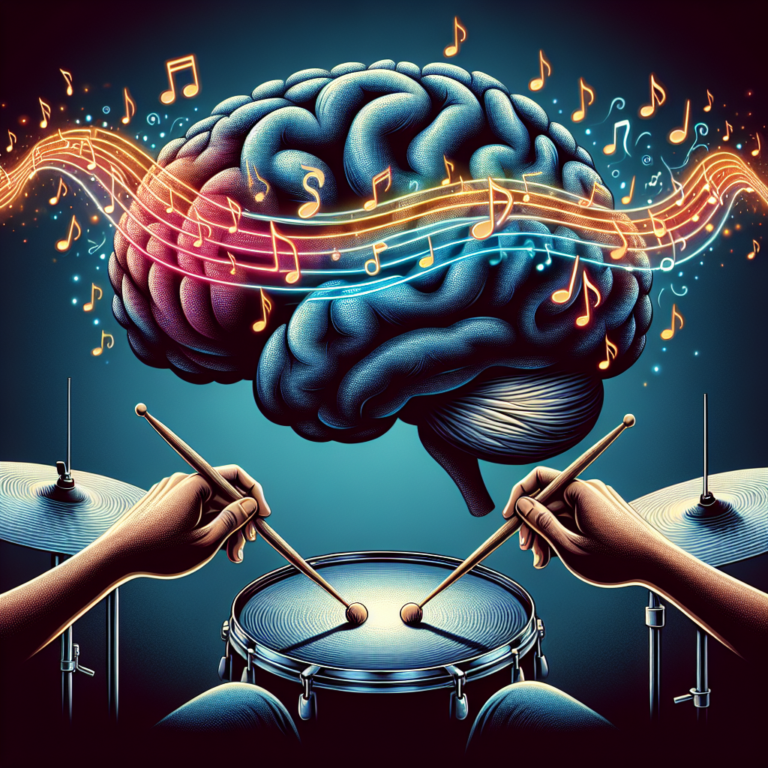Drumming has long been a fundamental aspect of human culture, with the rhythms and beats of percussion instruments playing a central role in tribal rituals, ceremonies, and celebrations. Beyond its cultural significance, research has shown that drumming can have significant impacts on the brain, leading to improved cognitive function, stress reduction, and even emotional healing.
One of the key ways in which drumming affects the brain is through its ability to synchronize neural oscillations. When individuals drum together in a group, the rhythmic patterns and beats create a sense of unity and cohesion, leading to a phenomenon known as entrainment. Entrainment is the process by which the brain synchronizes its neural oscillations with the external rhythmic stimuli, resulting in increased focus, attention, and cognitive function.
Studies have shown that drumming can also stimulate the release of endorphins and other neurotransmitters in the brain, leading to a sense of euphoria and well-being. This can have profound effects on mood and emotional health, helping to reduce stress, anxiety, and depression. Additionally, drumming has been found to increase levels of serotonin, a neurotransmitter that plays a crucial role in regulating mood, sleep, and appetite.
Furthermore, drumming has been shown to improve motor skills, coordination, and sensory perception. The repetitive motions involved in drumming can help to enhance hand-eye coordination and fine motor skills. In fact, research has shown that drumming can even lead to improvements in individuals with motor disorders such as Parkinson’s disease.
In addition to its physical and cognitive benefits, drumming also has the power to foster social connections and build community. The act of drumming in a group setting can create a sense of bonding and camaraderie, leading to increased feelings of empathy, trust, and cooperation. Drum circles, in particular, have become popular as a way for people to come together and connect through the shared experience of rhythm and music.
In conclusion, the power of percussion is a truly remarkable thing. From its ability to synchronize neural oscillations and stimulate neurotransmitters in the brain, to its capacity to improve motor skills, coordination, and emotional well-being, drumming has a profound impact on the brain. Whether you’re a seasoned drummer or a novice looking to explore the world of rhythm and music, the benefits of drumming are undeniable. So grab a drum, find a rhythm, and let the power of percussion transform your brain and your life.

